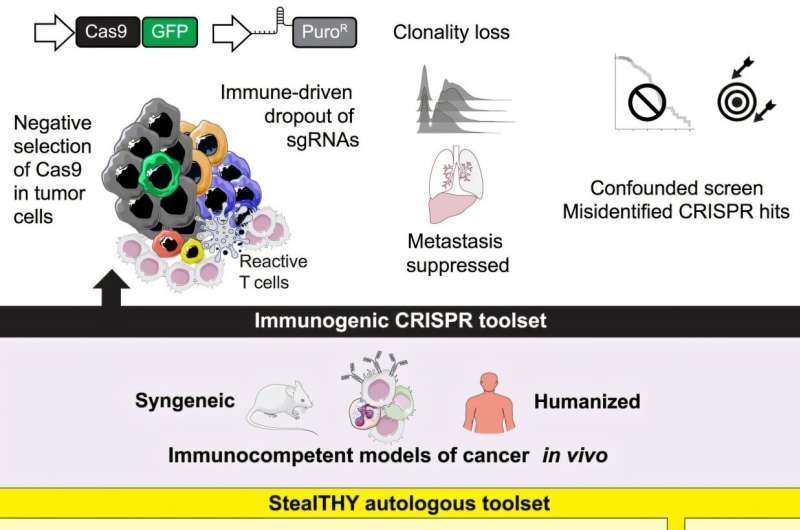Thanks to CRISPR/Cas9 technology, researchers can quickly create a pool of hundreds of tumor cells, each with a different gene switched off. When transplanted into mice, it becomes apparent which of these silenced genes influences the development and spread of cancer. Assisted by such CRISPR screens, scientists are able to identify valuable approaches for the development of new therapies.
But the method comes with a catch. The components of CRISPR/Cas9 originate mainly from bacteria, with the result that they are recognized as foreign by the immune system of mice and attacked. Researchers suspect that this reaction distorts the results of CRISPR screens.

